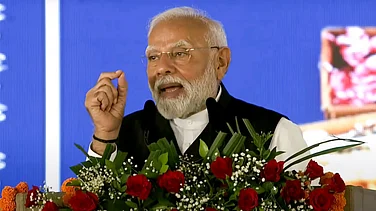In a startling revelation, an official audit has found that over 14,000 men fraudulently received funds under Maharashtra’s Ladki Bahin Yojana, a welfare scheme designed exclusively for economically disadvantaged women.
The scheme, launched in 2023 by the Mahayuti coalition government ahead of the 2024 Maharashtra Assembly elections, provides ₹1,500 per month to women aged 21 to 65 from families with an annual income below ₹2.5 lakh. Touted as a major social welfare initiative, it aimed to empower women financially—but is now mired in controversy over large-scale misuse.
According to a report by the Women and Child Development (WCD) Department, 14,298 men manipulated the online registration system and falsely enrolled as female beneficiaries. This fraudulent enrollment led to the wrongful disbursal of ₹21.44 crore in public funds. The irregularities were detected nearly 10 months after the scheme’s rollout.
Deputy Chief Minister Ajit Pawar, responding to the findings, said, “The Ladki Bahin scheme was launched to help poor women. There is absolutely no reason why men should be its beneficiaries. We will recover the money given to them. If they do not cooperate, further action will be taken.”
However, the issue extends far beyond gender fraud. The WCD audit estimates that the scheme suffered losses amounting to ₹1,640 crore in its first year due to widespread violations of eligibility rules.
The most significant violation came from 7.97 lakh women who registered as third female members from the same household—despite the scheme allowing benefits to only two women per family. This alone caused an estimated loss of ₹1,196 crore to the state exchequer.
Additionally, 2.87 lakh beneficiaries were found to be over the age limit of 65 years, resulting in another ₹431.7 crore in losses. The audit also flagged 1.62 lakh women from households owning four-wheelers—families who do not qualify under the scheme’s criteria—as ineligible recipients.
Political observers note that the scheme, which was a flagship initiative of the BJP-led Mahayuti alliance that includes the Eknath Shinde faction of Shiv Sena and the Ajit Pawar-led NCP, had played a key role in the coalition’s voter outreach last year. Its misuse has now sparked widespread criticism and demands for a comprehensive review.
Opposition leaders have accused the government of rushing the scheme for electoral gain without putting adequate safeguards in place.
“Once again, public money meant for the poor has been looted due to lack of verification and accountability,” said Congress leader Varsha Gaikwad. “This is not just a case of misuse—it’s administrative negligence on a massive scale.”
The WCD Department has recommended tighter verification protocols, linking Aadhaar data to cross-verify gender, age, and vehicle ownership. Officials have also hinted at possible legal action against those found guilty of defrauding the system.
As the state government scrambles to control the fallout, questions remain about how such a large-scale breach went undetected for months—and whether stricter oversight will be implemented in time to salvage the scheme’s credibility.






















